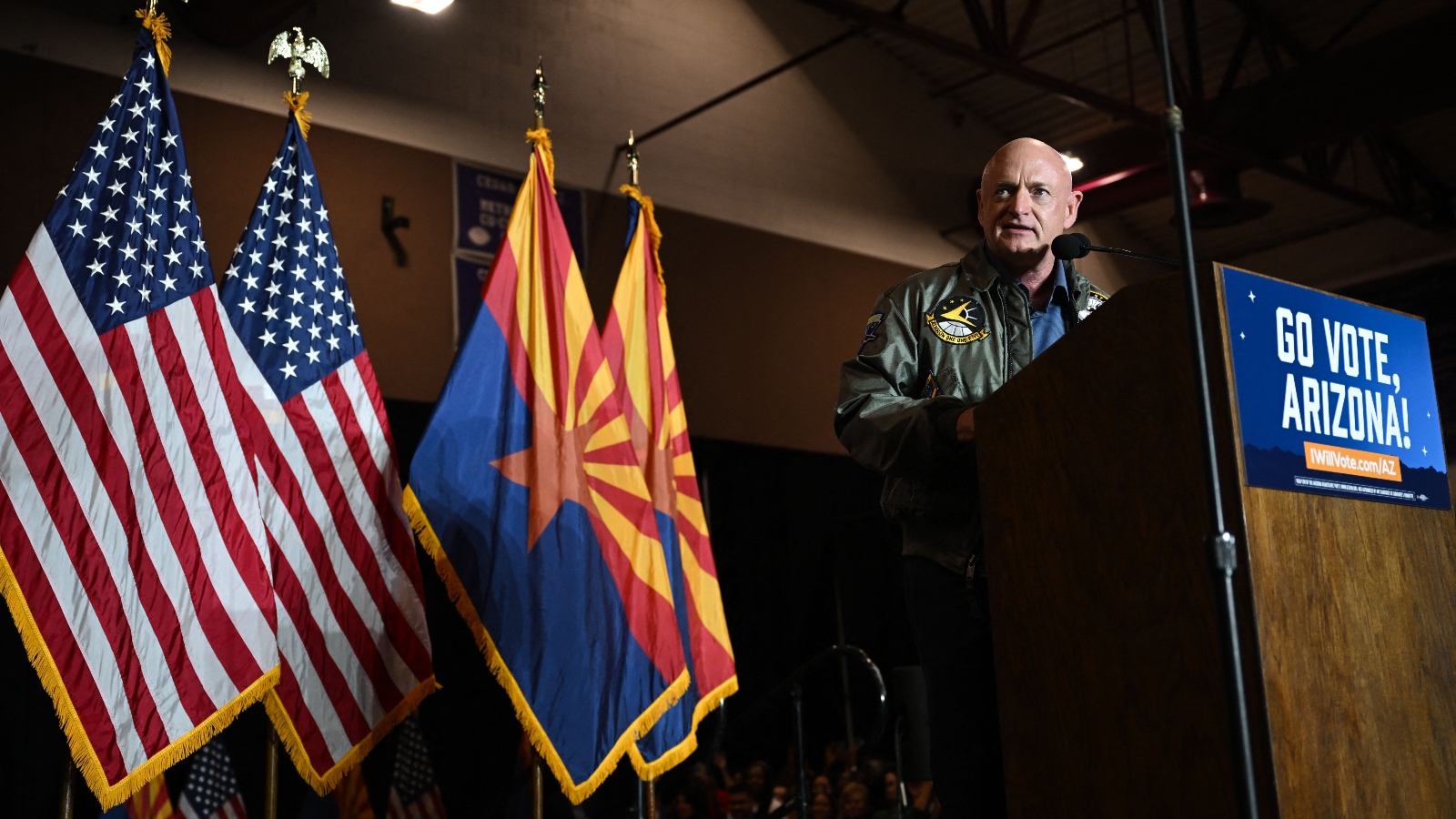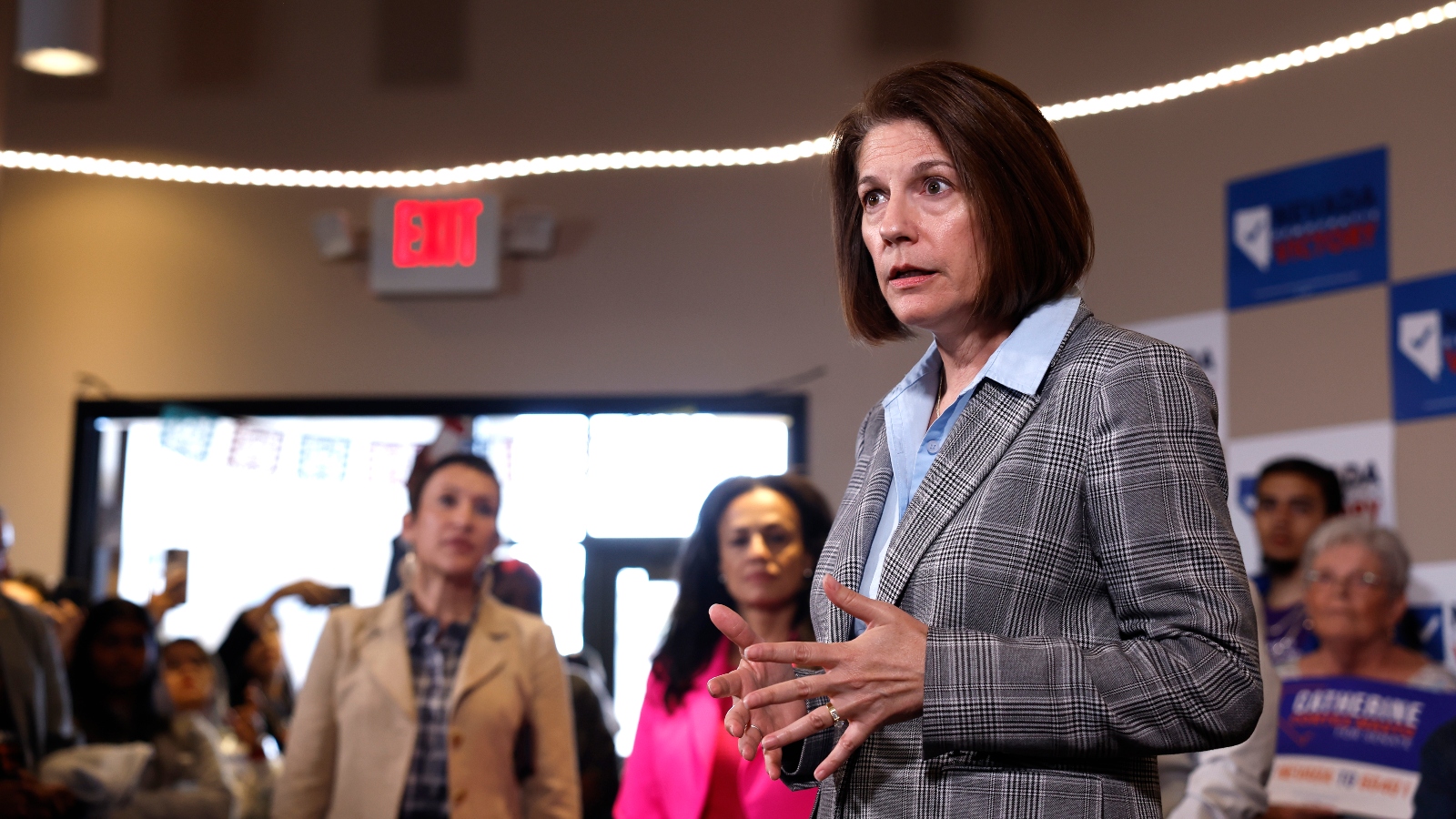Good morning Parched readers, Jake Bittle here. It’s election day, and today we’re going to talk about how drought is affecting the outlook in midterm races across the U.S. West.
Much of the western United States has suffered under drought conditions this year, but the impacts have been most acute in the Southwest, which relies heavily on the fast-drying Colorado River to supply water for its cities and farms. It’s no surprise, then, that drought has emerged as a key issue for candidates in the region ahead of the midterm elections.
Although the region’s water shortage is not motivating voters as much as issues like inflation and abortion access, it has nevertheless become a major talking point for western politicians as they hit the campaign trail. Senators and representatives in close races have talked up the issue in debates and campaign ads, with vulnerable incumbents touting their efforts to fight drought as evidence that they’re delivering for their constituents. In the tightest contests, concern over water scarcity may make a world of difference.

U.S. Senator Mark Kelly, Democrat of Arizona, speaks during a campaign event with former President Barack Obama in Phoenix, Arizona, on November 2, 2022. Patrick T. Fallon / AFP via Getty Images
The highest-profile examples are Senate races in Arizona and Nevada, where Democrats Mark Kelly and Catherine Cortez Masto face stiff challenges from surging Republican candidates. The incumbents represent two of the country’s driest states, and are also some of the Senate’s foremost advocates for drought relief.
Earlier this year, Kelly and Cortez Masto joined with two other Democrats from the West to secure $4 billion in drought funding as part of the Inflation Reduction Act, which passed the Senate in August. Most of the money will pay farmers along the Colorado to leave their fields unplanted next year, which will ease the burden on the river. Last year, the same group of senators helped negotiate more than $8.3 billion in long-term drought funding from the bipartisan infrastructure bill.

U.S. Senator Catherine Cortez Masto, Democrat of Nevada, speaks to volunteers at a campaign office in Las Vegas. Anna Moneymaker / Getty Images
Political groups backing Kelly and Cortez Masto have touted their work in obtaining the drought funding in ads on television and social media, saying it shows how the senators have delivered for their constituents. EDF Action, the political arm of the Environmental Defense Fund, spent $1.5 million on Spanish-language ads hyping Kelly’s drought work. Kelly and Cortez Masto have both talked up their drought credentials on the campaign trail in an attempt to frame themselves as bipartisan problem-solvers.
The outcome of the midterms could have big implications for how the U.S. responds to the worsening drought. If Democrats lose control of one or both chambers of Congress, it could imperil future relief packages like the one in the Inflation Reduction Act, since Republican leaders have said they hope to use their new majorities to cut government spending.
To take just one example, the House of Representatives passed a drought spending bill back in July that contained another $500 million for western water conservation. The bill’s sponsors struggled to gain Republican support in the Senate, and in a Republican-controlled Congress, it would likely be dead in the water.
To learn more about how drought is influencing midterm races in the U.S. West, read the full story here.
Happy voting!
What we’re reading:
COP27: Drought-stricken countries work together to fight water woes
Gloria Dickie, Reuters
◆ Read more
Relentless drought kills hundreds of Kenya’s zebras, elephants, wildebeests
Brian Pietsch, Washington Post
◆ Read more
Rural ranchers face $4,000 proposed fine for violating state drought order
Rachel Becker, CalMatters
◆ Read more
Drought forces one of Spain’s largest hydro plants to halt
Thomas Gualtieri, Bloomberg
◆ Read more
Up to 1 million birds count on Kansas wetlands during migration. Drought has left them high and dry.
David Condos, Kansas News Service
◆ Read more

